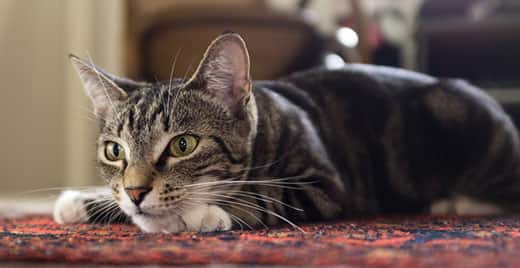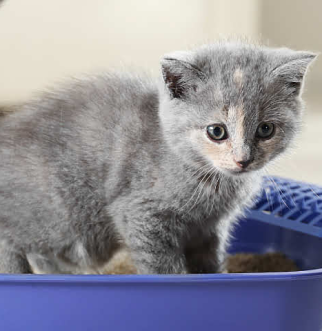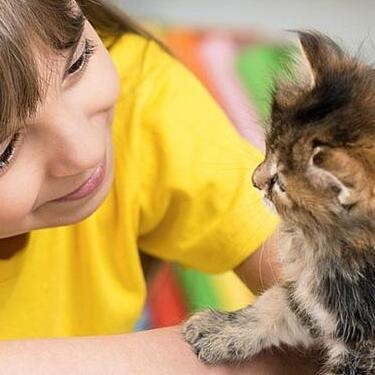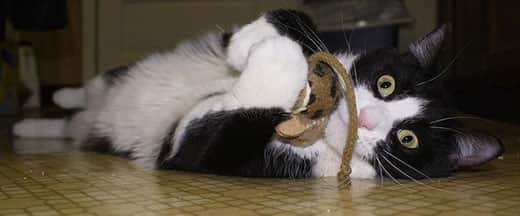
-
Find the right food for your pet
Take this quiz to see which food may be the best for your furry friend.
Find the right food for your pet
Take this quiz to see which food may be the best for your furry friend.
Featured products
 Small & Mini Savory Stew with Chicken & Vegetables Dog Food
Small & Mini Savory Stew with Chicken & Vegetables Dog FoodA delicious complement to the nutrition of Science Diet Small & Mini 7+ dog food
Shop Now Adult Healthy Cuisine Roasted Chicken, Carrots & Spinach Stew Dog Food
Adult Healthy Cuisine Roasted Chicken, Carrots & Spinach Stew Dog FoodDelicious roasted chicken paired with tender vegetables in a succulent stew
Shop Now Adult 7+ Perfect Digestion Chicken, Whole Oats & Brown Rice Recipe Dog Food
Adult 7+ Perfect Digestion Chicken, Whole Oats & Brown Rice Recipe Dog FoodScience Diet's breakthrough nutrition supports ultimate digestive well-being & healthy microbiome for dogs age 7+
Shop NowFeatured products
 Adult Savory Entrée Can Variety Pack Cat Food
Adult Savory Entrée Can Variety Pack Cat FoodPrecisely balanced nutrition with the delicious taste of savory minced chicken to help fuel the energy needs of cats during the prime of their life
Shop Now Adult 7+ Senior Vitality Chicken & Vegetable Stew Cat Food
Adult 7+ Senior Vitality Chicken & Vegetable Stew Cat FoodImproves Everyday Ability to Get Up & Go
Shop Now Adult 7+ Tender Tuna Dinner Cat Food
Adult 7+ Tender Tuna Dinner Cat FoodWith delicious chunks in a decadent gravy
Shop Now -
Dog
- Dog Tips & Articles
-
Health Category
- Weight
- Food & Environmental Sensitivities
- Urinary
- Digestive
- Joint
- Kidney
-
Life Stage
- Puppy Nutrition
- Adult Nutrition
- Senior Nutrition
Cat
- Cat Tips & Articles
-
Health Category
- Weight
- Skin & Food Sensitivities
- Urinary
- Digestive
- Kidney
-
Life Stage
- Kitten Nutrition
- Adult Nutrition
Featured articles
 Do Dogs and Cats have Belly Buttons?
Do Dogs and Cats have Belly Buttons?Learn whether cats & dogs have belly buttons like humans, what the function is, and if there are any health concerns associated with it.
Read More Why Are Dogs and Cats So Cute?
Why Are Dogs and Cats So Cute?If waggy puppy dog tails and furry kitten yawns make you swoon, you're not alone. Why are cats so cute? And, dogs too! Let's find out!
Read More Does My Pet Hate Me?
Does My Pet Hate Me?Learn tips for bonding with your pet if you've ever thought, 'My dog doesn't like me, or 'Why do I have a standoffish cat?'
Read More -


In the middle of a play session, without warning and seemingly out of nowhere, your cat clamps down on you for a quick, painful nibble. First thought: "Ow! Aren't we friends?" Second thought: "Why do cats bite when I play with them?"
One of the most common reasons why cats like to sink their tiny — but mighty — teeth into our skin is play aggression. But the good news is that with this information, you'll not only understand why cats nip, but you'll also have tools you need to help redirect or, ideally, prevent this unwelcome behavior.
Why Do Cats Bite While Playing?
Essentially, if your cat nips at you during playtime, it's their way of saying, "This is fun, but let's take it to the next level." Engaging in play with your fur baby is a terrific bonding experience, but if your cat's playfulness turns aggressive, they'll bite you or, perhaps, use your entire arm as a chew toy.
Cats play in a way that "involves typical predatory and play behaviors," notes the ASPCA: stalking, attacking, clawing and biting their perceived opponent. It's not unusual for them to act this way with their pet parents, and once they're in the throes of roughhousing, they may have difficulty pulling back.

Sometimes cat parents don't realize they're actually encouraging the biting. As International Cat Care points out, when people play a little too "rough and tumble" with young cats, "they often reinforce the highly excitable behavior, and encourage kittens to grow up biting and scratching in the name of play with an intensity that can cause injury." But keep in mind, roughhousing isn't a good idea with cats of any age.
How to Prevent Cat Nips
The best way to stop aggressive biting is to shut it down before it becomes a habit. It's not always easy, but your skin will thank you later.
For starters, understanding your cat's body language can go a long way toward curbing play biting. It's easy to get distracted while playing together, but you'll want to pay careful attention to your cat's stance, ear and tail positions, and eyes.
Remember that the reason cats play bite is that they are acting like you're prey. And why do cats nip? They're giving you a warning. If their eyes are dilated, back away slowly. And if they're crouched and shaking their rear end, you're about to be ambushed!
You can still goof around and be very active with your cat pal, but there are ways to do so without ending up on the receiving end of their fangs. For example, don't use your hand or arm as a toy; instead, employ a real toy, such as a catnip mouse or bird on a wand, as the go-between. If you still find yourself under attack, redirect your cat's attention by tossing a beloved toy in the opposite direction so they'll dart after it.
If your cat does bite you while playing, don't react in a way that'll break the bond of trust between you two. "Never physically punish or even touch a cat during these times," emphasizes the Cornell Feline Health Center, "as this may cause a cat to become fearful of people or may be interpreted as play, which may inadvertently reward the aggressive behavior." So if redirecting doesn't work, simply walk away and ignore your kitty — they'll eventually get the hint that this isn't appropriate behavior.


Tasty Tips
Shifting From Cat Bites to Affectionate Acts
You may be taken aback by unexpected behavior like play biting, but don't consider it a sign that your kitty doesn't love you. Cats have unique ways of showing affection, after all, from head-butting to, yes, "love nips." When your furry friend gently nibbles on your finger, that's just fine. When they start all-out chomping on you during playtime, it's probably time to curb this behavior.
Instead of allowing nipping at all, encourage more gentle sentiments like kneading and snuggling. If you show a lack of interest in playing rough, your cat might lose interest in it, too.
It's not always easy to change your cat's behavior, but redirecting and preventing your furry friend's biting urge will help take the sting out of playtime.


Christine O'Brien is a writer, mom, and long-time cat parent whose two Russian Blues rule the house. Her work also appears in Care.com, What to Expect, and Fit Pregnancy, where she writes about pets, pregnancy, and family life. Find and follow her on Instagram and Twitter @brovelliobrien.
Related products
Related articles

How do you get a cat to lose weight? Learn all about cat foods for weight loss, including how to choose weight control cat food and exercise tips.

Cats are naturally very clean and chances are your kitten will already have learned how to use the litter box from her mother before she comes to live with you.

What is the best food for an overweight cat? Learn all about weight control food for cats, including what's in it and how it works.

Discover how to train your cat, starting with very basic first steps that both reward good behavior and discourage the bad.

Put your cat on a diet without them knowing
Our low calorie formula helps you control your cat's weight. It's packed with high-quality protein for building lean muscles, and made with purposeful ingredients for a flavorful, nutritious meal. Clinically proven antioxidants, Vitamin C+E, help promote a healthy immune system.
Put your cat on a diet without them knowing
Our low calorie formula helps you control your cat's weight. It's packed with high-quality protein for building lean muscles, and made with purposeful ingredients for a flavorful, nutritious meal. Clinically proven antioxidants, Vitamin C+E, help promote a healthy immune system.


